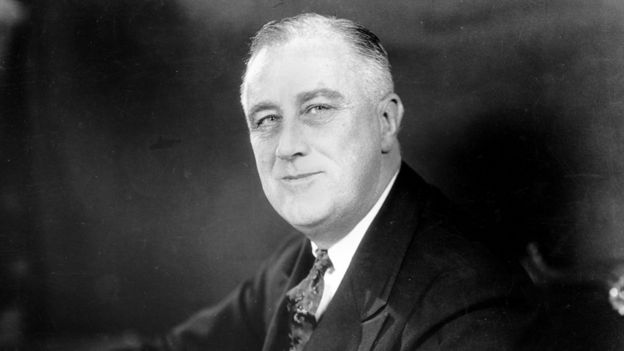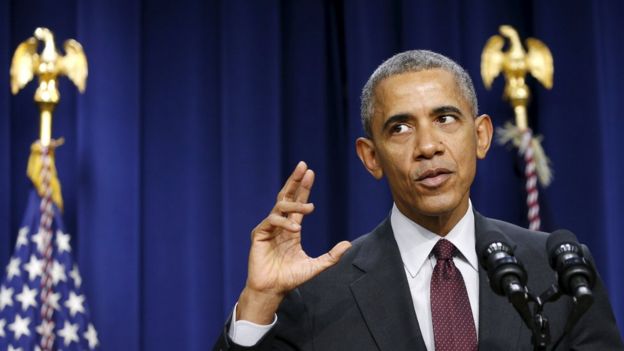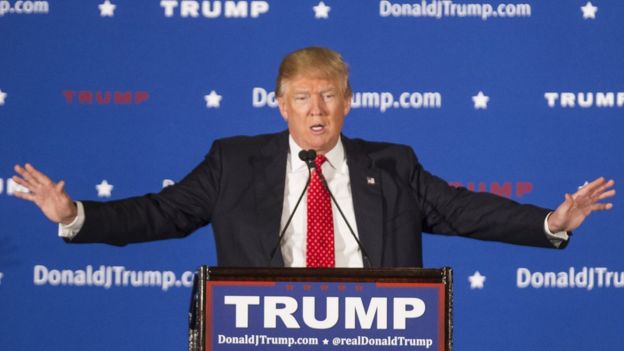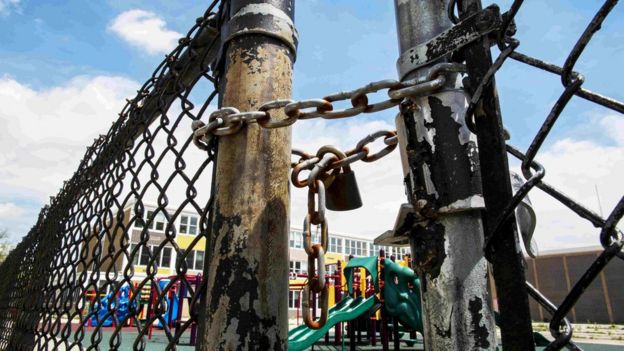Africa: Charting the Digital Gender Gap
AfricaFocus Bulletin
January 25, 2016 (160125)
(Reposted from sources cited below)
Editor’s Note
New research from the World Wide Web Foundation reveals new details
about the enduring digital gender gap in Africa’s urban cities,
despite the unprecedented expansion of access to mobile phones among
women as well as men. In poor neighborhoods of six African cities,
the study shows, “women are almost as likely as men to own a mobile
phone of their own, but they are a third less likely than men of
similar age, education level and economic status to use their phones
to access the Internet. ” The cities included were Lagos, Nairobi,
Maputo, Kampala, Yaounde, and Cairo.
For a version of this Bulletin in html format, more suitable for
printing, go to http://www.africafocus.org/docs16/ict1601.php, and
click on “format for print or mobile.”
To share this on Facebook, click on
https://www.facebook.com/sharer/sharer.php?u=
http://www.africafocus.org/docs16/ict1601.php
The full 10-country study, also including Manila, Jakarta, and New
Delhi in Asia, and Bogota in Latin America, predictably showed that
education, age, and income had significant effects on the scale of
the digital gender gap, and found that three of ten men surveyed
were adamant that the Internet should be a male-controlled domain.
But it also showed that once women did have access, they were able
to narrow the gap with men in effective use of the Internet.
It concluded that explicit attention to gender equity in ICT
policies could have major impact for poor women as well as men, in
an urban environment in which access to mobile phones is now almost
universal.
The report from Mozambique, which has long pioneered in Internet
access, well illustrates the point. “The Women’s Rights Online
Mozambique report found that while nearly all women and men in
Maputo slum areas own a mobile phone, only 33% of women had accessed
the Internet, compared to 59% of men. … The majority of
respondents (96% of men and 93% of women) used their mobile phone
every day.” But while women use it predominantly for voice and text
messaging, a higher proportion of men have access to data plans and
the Internet.
This AfricaFocus Bulletin includes the executive summary of the
report, as well as two brief blog posts on Maputo and Yaounde. The
full report, as well as data files from the survey, are available on
the website of the World Wide Web Foundation (
http://webfoundation.org).
For previous AfricaFocus Bulletins on information and communication
technology, visit http://www.africafocus.org/ictexp.php
++++++++++++++++++++++end editor’s note+++++++++++++++++
Women’s Rights Online : Translating Access into Empowerment
Global Report – October 2015
World Wide Web Foundation
with support from Swedish International Development Cooperation
Agency (Sida)
http://webfoundation.org/ – direct URL: http://tinyurl.com/ztjkmx9
Executive Summary
The newly adopted UN Sustainable Development Goals include an
important pledge to harness information and communications
technologies (ICTs) to advance women’s empowerment, as well as a
commitment to connect everyone in Least Developed Countries to the
Internet by 2020. However, until now, estimates of the “digital
divide” between women and men in use of the Internet and other ICTs
have been sketchy.
This report explores the real extent of that divide in nine cities
across nine developing countries, in order to gain a better
understanding of the empowering potential of ICTs as a weapon
against poverty and inequality, and the barriers that must be
overcome to unlock it. Research was designed and carried out in
close collaboration with leading national civil society
organisations in the countries we studied.
The stereotype of poor people in the developing world uniformly
“left behind” in the darkness of a life without Internet
connectivity is as misleading as its opposite: the cliche in which
almost everyone in Nairobi or Jakarta now wields a mobile phone that
gushes forth market price data, health information and opportunities
for civic engagement.
Instead, our research reveals a picture of extreme inequalities in
digital empowerment – which seem to parallel wider societal
disparities in information-seeking, voice and civic engagement. For
example, Internet use among young, well-educated men and students in
poor communities of the developing world rivals that of Americans,
while Internet use among older, uneducated women is practically non-
existent.
Inequalities in access
Women are about 50% less likely to be connected than men in the same
age group with similar levels of education and household income.
Women are almost as likely as men to own a mobile phone of their
own, but they are a third less likely than men of similar age,
education level and economic status to use their phones to access
the Internet.
The most important socio-economic drivers of the gender gap in ICT
access are education and age. Controlling for income, women who have
some secondary education or have completed secondary school are six
times more likely to be online than women with primary school or
less.
Cities with the highest gender gaps in education level such as
Nairobi (Kenya), Kampala (Uganda), Maputo (Mozambique), and Jakarta
(Indonesia) were also the ones where the highest gender gaps in
Internet access were reported.
Conversely, in the cities where women’s educational attainment
outstrips the men in our sample (New Delhi and Manila), the gender
gap in Internet access has closed.
Unconnected women cited lack of know-how and high costs as the major
reasons that they are not using the Internet. In the countries in
our study, a monthly prepaid data allocation of one GB (enough for
just 13 minutes of Web use a day, excluding video) costs, on
average, about 10% of average per capita income. That’s 10 times
more than what the same data costs the average OECD citizen,
relative to income, and is double what
people in developing countries spend on healthcare. In the countries
with the highest Internet costs as a proportion of average income,
our study found the lowest numbers of women online and the largest
gender gaps in Internet use.
Inequalities in use
How people use the Internet, once they are connected, is also
strongly influenced by offline inequalities. Most of the urban poor
respondents in our study face comprehensive marginalisation in civic
and economic life. Only a small minority proactively seek out
information from any source on topics key to achieving their rights,
and an even smaller percentage participate in political debate or
community affairs. Most are in insecure, informal work or don’t have
any reliable income of their own. Being female deepens exclusion on
every single one of these counts.
A few of these poor urban dwellers are starting to use the Internet
to change their situation – to gain a voice, seek information,
enhance their livelihoods, or expand their networks beyond existing
social boundaries. Not only is this group small, it is also
disproportionately male.
Women are half as likely as men to speak out online, and a third
less likely to use the Internet to look for work (controlling for
age and education). However, there is potential for digital
empowerment to spread much more widely and equitably:
* A high proportion of women and men surveyed recognise and value
the Internet as a space for commenting on important issues, and say
that the Internet has made it safer for women to express their views
– even though they may not yet be using it for this purpose
themselves.
* Large majorities of urban poor Internet users do already exploit
digital platforms as a vehicle for reinforcing the social ties on
which their survival often depends, suggesting that the Internet’s
power to enhance social capital could be an effective route to
digital empowerment.
* Education is a major enabler of digital empowerment among women,
suggesting opportunities for greater investment in girls’ education
to work hand-in-hand with targeted ICT skills programmes in schools.
* Gender gaps in how men and women use the Internet are significant
– but not as large as gender disparities in access to the Internet.
In other words, once women do manage to get online, the gap narrows
between female and male users in terms of digital empowerment. The
policy challenge is to grow the minority of women using the Internet
and expand their voice and choices into a majority – both through
expanding women’s access and in tackling barriers to women’s
empowerment.
Notably, women who are active in “offline” political and civic life
are not only more likely to be connected in the first place, but are
also three times more likely (controlling for education level, age
and income) to use the Internet to express opinions on important or
controversial issues than other women. We need to better understand
this synergy between offline and online agency in order to learn how
gender norms that silence women in both realms can be overcome.
Patriarchy online
Around three in 10 men agreed with sentiments that the Internet
should be a male-controlled domain, but only two in 10 women agreed.
Only a tiny fraction of women said they do not use the Internet
because it is “not appropriate” for them or that they are not
permitted to do so. Such attitudes were much more prevalent in some
cities than others, however. For example, in New Delhi and Manila
nearly two-thirds of men agreed with the statement that women should
not be allowed to use the Internet in public places, and over half
agreed that men have the responsibility to restrict what women look
at online. Yet, these were the two cities with the highest levels of
Internet use among women, suggesting that patriarchal beliefs don’t
necessarily stop women getting online. However, further research is
needed to explore the extent to which they contribute to self-
censorship in how, where and when women use the Internet.
Summary of key recommendations
We will not achieve the SDGs on universal Internet access and
empowerment of women through ICTs unless technology policy is
specifically designed to tackle and overcome the steep inequalities
of gender, education, and income outlined in this study.
Full details of each recommendation can be found at the end of the
report, but the fundamentals include:
1 Establish time-bound targets for equity in Internet access, use
and skills, by gender and income level. Our 2014 Web Index shows
that many national ICT strategies or broadband plans include, at
most, a rhetorical commitment to gender equity. A few have a
patchwork of interesting but small-scale programmes and initiatives,
but overarching targets linked to budget allocations are needed to
ensure coherence, coordination and scale.
2 Teach digital skills from primary school onwards. Our findings
point strongly to the overwhelming difference that education makes
to women’s use of technology, even when controlling for other
factors such as income and age. By making sure that primary and
secondary school curricula include ICT literacy basics, we can take
advantage of near-100% primary enrolment rates to open up digital
opportunities for everyone.
3 Smash the affordability barrier. Making broadband cheaper is not
only the best way to get more people connected, but also a
prerequisite to enable them to go online and explore longer and more
often, so they can fully unlock digital opportunities. For example,
women who are able to go online daily are nearly three times more
likely than infrequent users to report that the Internet has helped
them to increase their income.
4 Practice woman-centred design. The impact of online services could
be dramatically increased by defining the end user as a woman and
not just a generic “consumer”. Experience shows that when women are
not consulted, products and services are often destined to fail.
When government agencies and donors invest in such services, the
number one target for success should be uptake by low-income women.
5 Make women’s civic and political engagement an explicit goal. The
small minority of poor women who are already active in community or
political life are not only much more likely to be online, but also
far more likely to use technology in transformative ways.
Policymakers should work with women’s groups to find ways that
technology can help women to enhance their offline participation,
voice and power.
6 Combat harassment of women online. In 74% of countries included in
the Web Index, law enforcement agencies and the courts are failing
to take appropriate actions in situations where ICTs are used to
commit acts of gender-based violence. Governments must take steps to
enact adequate legislative measure
7 It’s not (just) the technology, stupid. Neither communications
ministries, which typically have lead responsibility for national
ICT strategies, nor gender ministries, where these exist, can
achieve the SDGs on Internet access and women’s digital empowerment
on their own. Additionally, our findings underline the lesson that
empowering women does not happen in separate boxes labelled
“offline” and “online”, but requires progress across several fronts
at once. Government agencies, civil society groups and private
sector stakeholders will need to work together in all sectors to
ensure that ICT initiatives are systematically integrated with wider
efforts to expand women’s choices and capabilities in the labour
market, in the home, at school and in public life. Training
policymakers across different sectors (such as health, education,
small business, agriculture) to understand and harness the potential
of ICTs to tackle poverty and gender inequality may be a good
starting point.
*************************************************
Mozambique: What is keeping women offline?
Web Foundation · December 11, 2015
Women’s Rights Online
http://tinyurl.com/zawsfyd
As part of our Women’s Rights Online research, this series of guest
blogs features on-the-ground perspectives from each of our research
partners around the world. In this post, Mozambique’s Science,
Innovation, Information and Communications Technology Research
Institute (SIITRI) analyses Mozambique’s Women’s Rights Online study
results and outlines how to get more of the country’s women online.
The Women’s Rights Online Mozambique report found that while nearly
all women and men in Maputo slum areas own a mobile phone, only 33%
of women had accessed the Internet, compared to 59% of men. These
results confirm that women and girls are being excluded online in
Mozambique, and that we must take action to make sure the digital
future is inclusive.
As part of the project, we surveyed men and women in 29 urban poor
areas of the capital, Maputo to learn more about why the gap in
Internet access persists.
In our survey, women cited four main barriers to Internet access:
1. Many women have never learned how to use the Internet
2. Women simply do not have a device
3. Women are not able to access the Internet on their devices
4. High costs, including both network costs and the opportunity cost
of accessing the Internet, prevent women from accessing the Internet
Another important issue we considered was how women use their mobile
phones. Since the mobile phone is the first place many people
experience the Internet, we needed to know if the increase in mobile
phone use was benefitting women in terms of online access.
The majority of respondents (96% of men and 93% of women) used their
mobile phone every day. The service most frequently used by
respondents was combination of voice calls and SMS, and the
frequency of use of these services was higher amongst women (64%)
when compared with men (49%), as more men used a combination of
voice, SMS and data services.
This discrepancy in ownership and access to data services can be
explain in part by differences between men and women’s disposable
income. A greater percentage of men than women own a mobile phone
and spend more on accessing data.
How can Mozambique expand women’s access to the Web?
It’s clear that efforts are needed to expand women’s access. There
is much to be done, but we recommend focussing on four key areas to
tackle the gap in Mozambique:
1. Improve education: First and foremost, we must tackle low levels
of education and high illiteracy rates of women and girls. Keeping
girls in school longer means reading skills will improve. The
government should also integrate ICT skills training into the
curriculum early on, to equip girls with the tools they need to
enter the information economy.
2. Change attitudes: We must also encourage changes in cultural
attitudes. The gender gap in education is often due to domestic
responsibilities, and traditions that downplay the importance of
girls’ education.
3. Provide affordable public access: In order to facilitate access
for women, ICTs need to be located in other local institutions women
frequent where they feel safe and welcome. These might include NGOs,
women’s employment centres, libraries and health centres. Providing
Internet access in a local health centre could bring the added
benefit of increasing women’s access to health information during
their visits.
4. Reduce the cost of mobile Internet: So many women own mobiles,
but so few are using them to get connected. Mozambique could
consider introducing a subsidised or free Internet access scheme,
providing more women with the opportunity to use the devices they
already have to get online.
How can we make this happen?
Mozambique was one of the first countries to adopt a comprehensive
ICT policy and implementation strategy. As a next step, it needs to
become fully gender responsive. SIITRI will target politicians,
policy makers and influencers directly with these recommendations to
close the gender gap in ICTs through engagement events, workshops
and roundtables. We have already begun this work by advocating at a
national level at the Maputo Internet Forum organised by Swedish
Embassy in October, through the ongoing work and advocacy of the
A4AI-Mozambique National Coalition, and by hosting a workshop on
“Advocating for Empowerment of Women through ICTs and the Web” in
late November. It is our objective to secure concrete and time-bound
commitments from the government to close the digital gender gap.
We must ensure the digital revolution is a revolution for women and
girls. We hope this project has begun that process, and we are
excited about the possibilities for women and girls in Mozambique.
You can follow our updates on our website (http://www.siitri.ac.mz).
***************************************************
Narrowing Cameroon’s gender gap: reasons for hope
Web Foundation · October 7, 2015
http://tinyurl.com/gn9jwwz
Women’s Rights Online As part of our Women’s Rights Online research,
this series of guest blogs features on-the-ground perspectives from
each of our research partners around the world. In this post, Julie
Owono, Head of Africa Desk at Internet Sans Frontières (
http://www.internetsansfrontieres.org/), shares her experience of
how improving women’s access to the Internet is empowering women in
Cameroon.
Being an expatriate Cameroonian woman, I know from personal
experience how Web-enabled information and communication
technologies (ICTs) can expand possibilities for women. I have had
opportunities that I could never have anticipated if I had remained
in the offline world. Indeed, I probably wouldn’t have found my
job, which now allows me to be involved in initiatives and projects
that help build a safe and accessible Internet for all, and help
tackle some social and economic issues that plague my country. I am
thinking for instance of the project Feowl, an open data project on
electricity cuts, that I created and implemented between 2012 and
2013.
I want the change that I have witnessed to spread to the many
Cameroonian women for whom survival and dignity are still a daily
struggle. ICTs are a tool – one that, when paired with the right
skills, can be transformational and empowering.
This is the focus of my work at Paris-based NGO Internet Sans
Frontières: ensuring that the Internet remains a space for
borderless creation, cooperation, and interaction, as well as a tool
for economic, social and political advancement.
Promoting Internet access among disadvantaged communities is central
in our work – from youth in Urban poor areas in Brazil, to helping
LGBT communities in Cameroon secure their digital communications,
and helping decrease the price of Internet access in the country
through our work with the Alliance for Affordable Internet -we are
committed to ensuring that the Web remains a space that anyone,
regardless of social, economic, political background can access and
use.
One disadvantaged group still experiencing barriers to access and
use of the Internet is women in developing countries. A 2012 study
by Intel and Dalberg on Women and the Web concluded that “across the
developing world, nearly 25 percent fewer women than men have access
to the Internet, the gender gap soars to nearly 45 percent in Sub
Saharan Africa”.
The figure is striking, but probably not surprising when compared it
to other gender metrics. Women are still the most subject to
inequalities. In Cameroon, women hold only 16.1 percent of the seats
at the parliament. 63.3 percent of the women aged 15 and above
participate in the labor workforce, while the figure goes up to 76.7
percent for men in the same age groups according to the UN’s Gender
Inequality Index. According to a 2007 survey by the Cameroonian
National Statistics Institute, Women spent an average 17 hours per
week on housework against 9 hours for men. We believe that access to
and effective use of the Internet can facilitate women’s
participation in political and economic life, closing the gender
gap.
The good news for Cameroon is that the Cameroonian Government has
taken the issue of the gender gap in ICTs seriously. Importantly,
the government has acknowledged that the major barriers to gender
equality are “socio-cultural hindrances, that are the corollary of a
patriarchal social organisation”. Admitting this challenge publicly
gives women space to discuss the problem and possible solutions
directly.
The government also claims to have trained more 100,000 women
between 2012 and 2002 in digital literacy and the use of ICT. Our
study suggests that while these efforts are commendable, we need to
expand on them to make visible progress on empowering women through
ICT.
The number of Cameroonian Internet users is also increasing,
particularly through mobile phones. More and more women use a well-
known Facebook group called Kamer sisters (read more about the group
here – link in French http://tinyurl.com/jjc8cwf ), gathering more
than 7,000 Cameroonian women based in or outside Cameroon, to
advertise their products and businesses and look for jobs. It is not
rare to see women looking to hire nannies, or young women looking
for such positions.
Whatsapp is also gaining popularity as a platform for women to
generate income and run communications for their small businesses.
For example, one young female entrepreneur advertises her talents
as hairdresser and makeup artist, giving her contact details on
whatsapp. For entrepreneurs like her, Whatsapp acts as a cheaper and
more direct alternative to a traditional website.
This is precisely what we hoped to achieve when Internet Sans
Frontières decided to get involved in the Women’s Rights Online
project: see these new trends in the use of Web-enabled ICTs spread
among women from poor urban backgrounds and benefit them socially
and economically. We look forward to sharing the full research
results and using them to understand the next steps for civil
society and government in narrowing Cameroon’s gender gap.
*****************************************************
AfricaFocus Bulletin is an independent electronic publication
providing reposted commentary and analysis on African issues, with a
particular focus on U.S. and international policies. AfricaFocus
Bulletin is edited by William Minter.
AfricaFocus Bulletin can be reached at africafocus@igc.org. Please
write to this address to subscribe or unsubscribe to the bulletin,
or to suggest material for inclusion. For more information about
reposted material, please contact directly the original source
mentioned. For a full archive and other resources, see
http://www.africafocus.org
 Image copyright iStock
Image copyright iStock 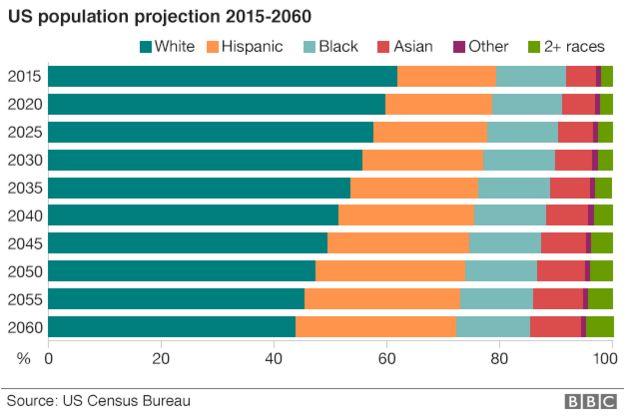
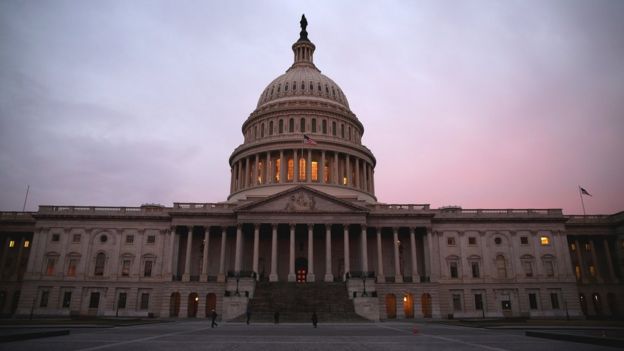 Image copyright Getty Images
Image copyright Getty Images 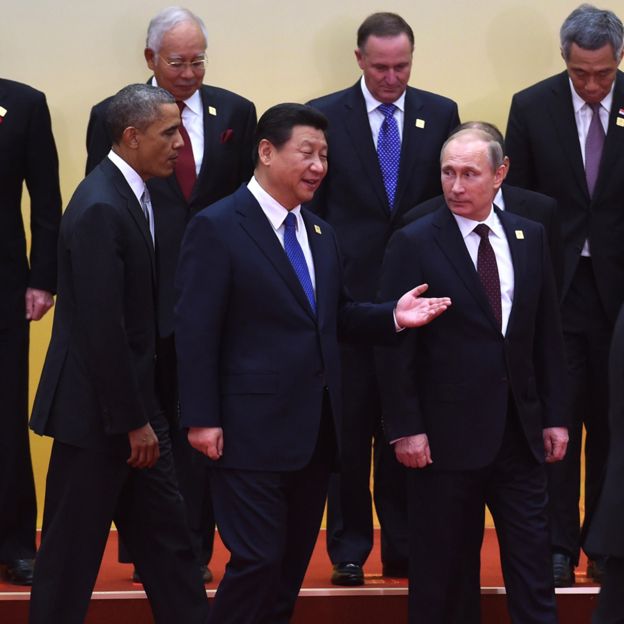 Image copyright AFP
Image copyright AFP 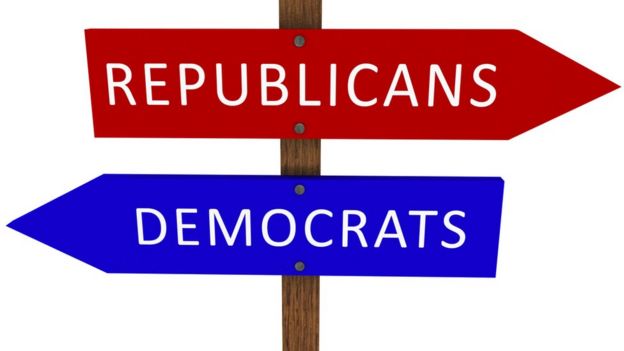 Image copyright iStock
Image copyright iStock 





